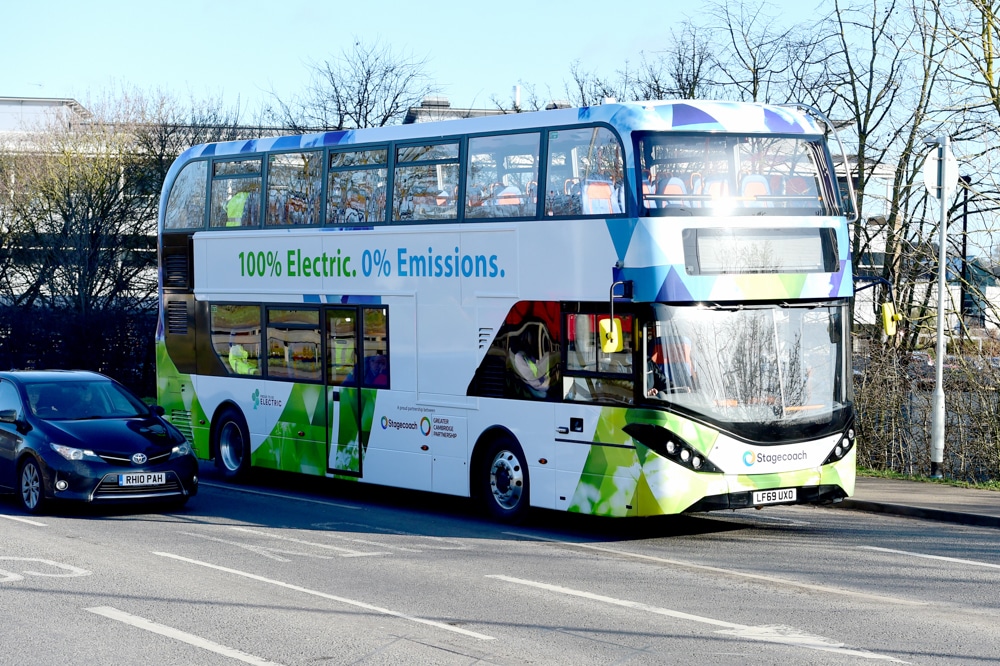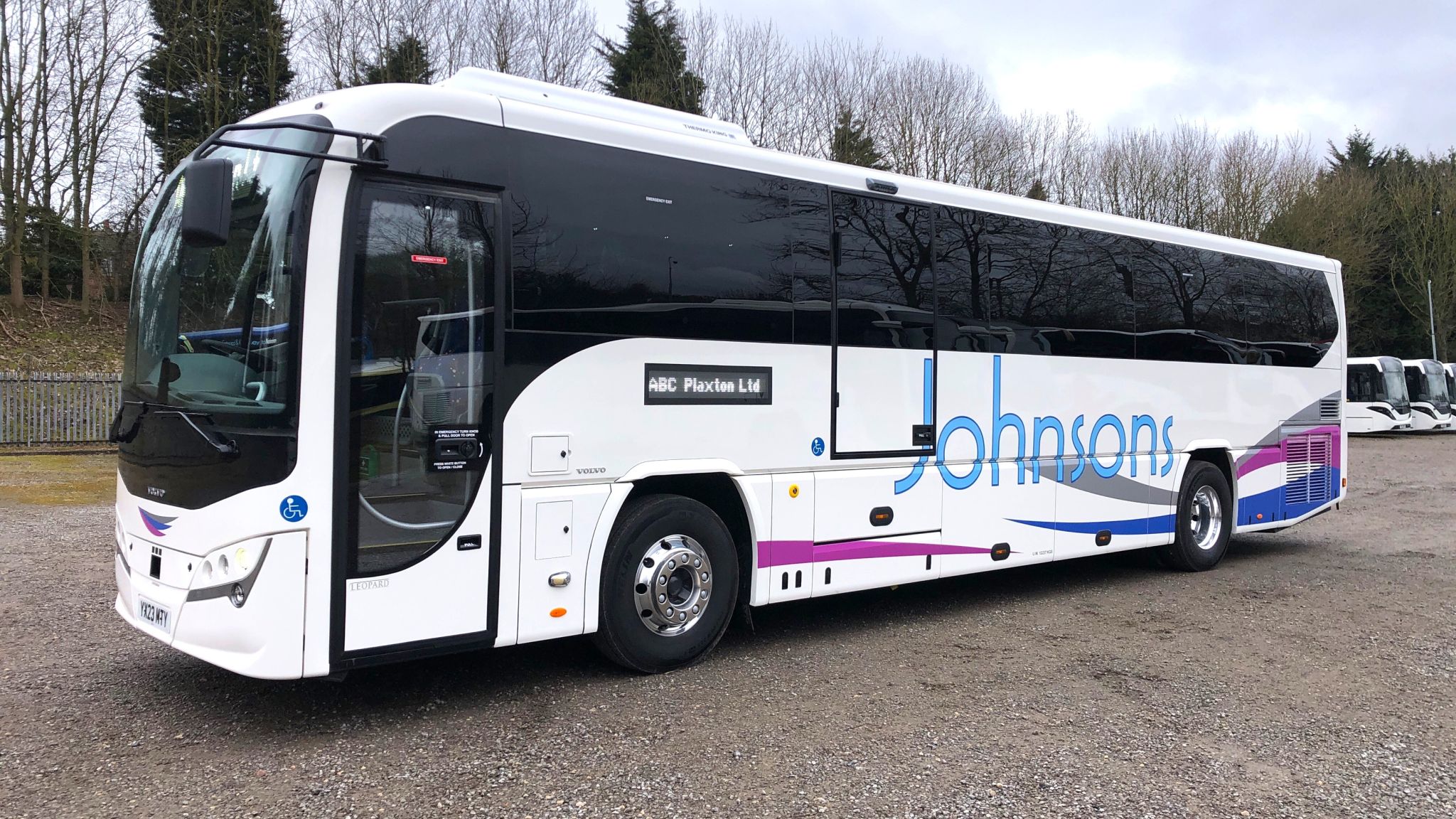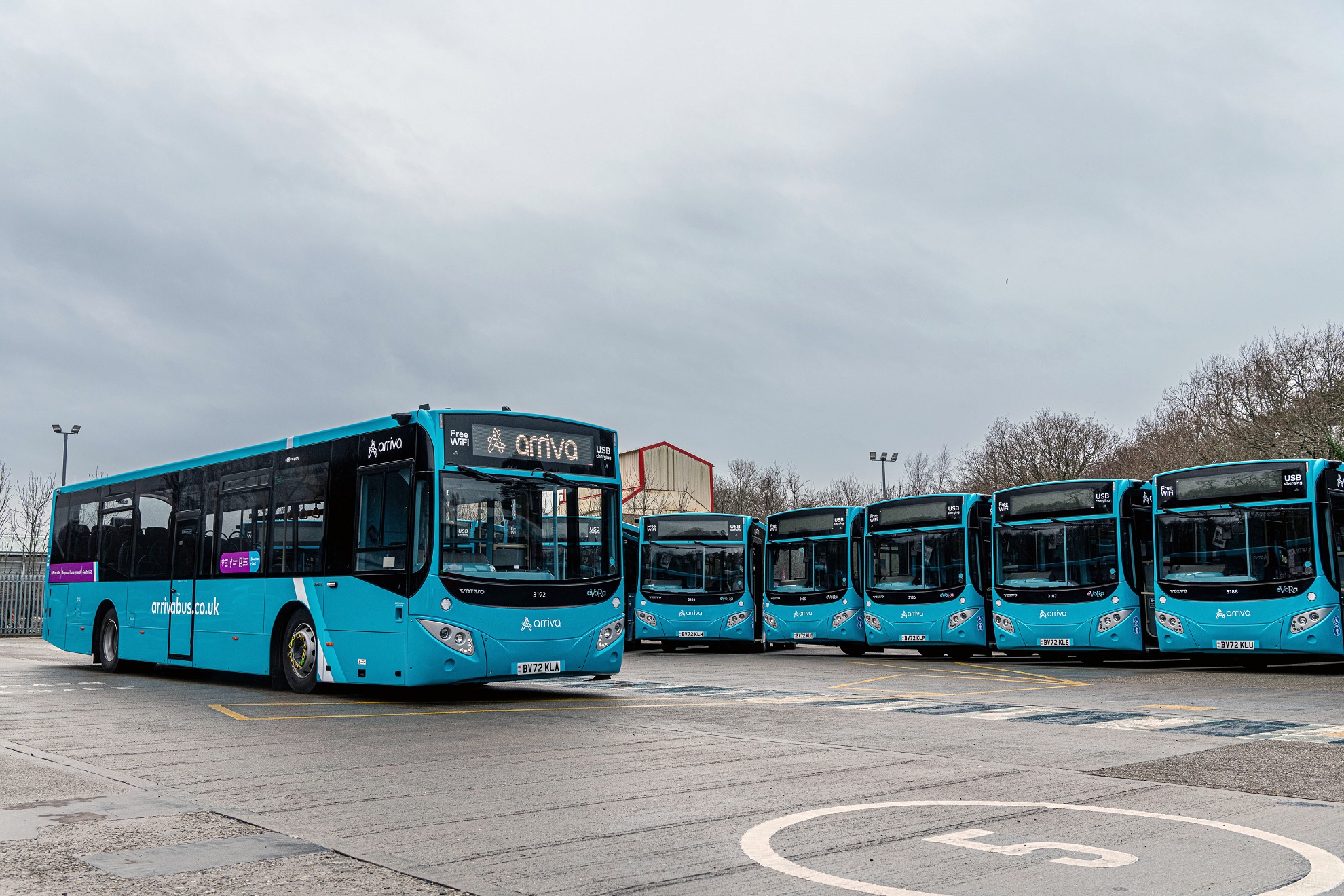Bus funding support of a similar level to that made available during the COVID-19 pandemic would be required in order to meet government emissions targets by 2030, according to a report published today by the Trades Union Congress (TUC).
The report sets out a plan for public transport across England and Wales to meet net zero targets, improve quality of life, and boost the UK economy.
It estimates that additional operating expenditure of about £7.5bn per year would be needed to increase bus patronage to levels that are necessary to address the climate emergency. However, this figure is dwarfed by the economic benefits of an improved service that are estimated by TUC.
The £7.5bn figure is just above the equivalent funding for local public transport, which includes buses and trams, of £7bn in England and around £70m in Wales for 2020-21.
The report notes that some of the amount could be defrayed by increased revenue brought about by service improvements. However, it adds that it can be argued that fares should be decreased in order to meet the goals of modal shift away from car.
The investment plan – produced by Transport for Quality of Life – also estimates £23.9bn of capital funding for buses is needed in England and Wales. This is composed of £10.3bn for additional buses and electrification and £13.6bn for bus priority infrastructure.
However, it predicts this would bring about an economic benefit of £68.1bn. Included in this is the calculated 617,000 direct and indirect jobs created through the proposed bus manufacture and construction of bus priority infrastructure.
The analysis, which covers all forms of public transport, begins its conclusion: “For years, the British public have put up with declining or non-existent bus services.” It further argues: “Poor and declining services are not an inevitability. Other countries in Europe have well integrated, cost effective, affordable and comprehensive services that serve their communities well.
“It is time to re-establish the importance of public transport as a public service, that provides access to health, education, jobs, family, opportunities and leisure, rather than as a purely commercial activity designed mainly to maximise profits.”
Call for regulation
It adds that to maximise the benefits of the investment we should “regulate buses and enable local authorities to set up new municipal bus companies and ultimately bring all public transport back into public ownership”.
The report acknowledges the importance of electrifying buses but claims that reducing car mileage by 4% would reduce emissions more than from electrifying the entire bus fleet. Also among the recommendations is that of a new guarantee of an hourly bus service for every village.
The TUC’s calls come amid repeated pleas from the bus industry for more foresighted funding ahead of the planned end of the latest round of short-term fixes in the form of the Bus Recovery Grant and Bus Fare Cap Grant (BFCG) on 30 June. At the Confederation of Passenger Transport UK Bus and Coach Conference recently, Under-Secretary of State for Transport Richard Holden recently raised hopes of longer-term aid for England.
Across bus, tram and rail, the TUC’s plan would require an average of £9.9bn in annual capital expenditure up to 2035. It adds that the additional operating costs for expanded services would reach £18.8bn annually by 2030. It forecasts such investment would reap £52.1 billion for GDP by 2030, aside from benefits to quality of life and the environment.
TUC General Secretary Paul Nowak says: “Everyone knows that we have to cut carbon emissions – and that switching to public transport is a big part of how do it.
“Investing in public transport will help us meet net-zero targets and reduce the threat of catastrophic climate change. And it creates jobs throughout England and Wales, boosts the economy in every community, and improves everyone’s quality of life.
“Commuters will have faster and cheaper journeys to work. New connections will bring new businesses to places where people need economic opportunities. We will save lives with cleaner air. And we will reduce loneliness and isolation by making everyone better connected, wherever you live.
“With this report, we’ve done the work that Conservative ministers should have done with their empty and incompetent net zero strategy.”



























